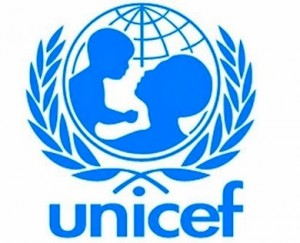UNICEF monitors stunted growth and malnutrition in Volta Region
 Food Specialists from the United Nations International Children Fund (UNICEF) are monitoring the progress of child malnutrition in the Volta Region (V/R) following interventions introduced to cut-down stunted growth and boost nutrition in pregnant women.
Food Specialists from the United Nations International Children Fund (UNICEF) are monitoring the progress of child malnutrition in the Volta Region (V/R) following interventions introduced to cut-down stunted growth and boost nutrition in pregnant women.
Among the entourage included Dr Victor Ngongalah, Chief of Health and Nutrition, Ms Lillian Selenje, Nutrition Specialist as well as other officials led by the country Representative, Ms Susan Namondo Ngongi.
They visited Ho Municipal, North Dayi, Adaklu and Ho West to interact with local communities, policymakers and programme implementers on intervention coverage and child feeding practices.
Ms Ngongiand said her entourage also met Mrs Helen Ntoso, the Regional Minister, and Dr Joseph Teye-Nuertey, the Regional Health Director, and interracted with members in the beneficiary communities including mothers and traditional leaders.
The Regional Minister called on UNICEF to help support the Region to deliver regular health services to about 30 percent of its population living on the islands that could not access health services.
“We have [many] communities that are deprived, most of our people are farmers and fisher folks on islands, they have no electricity, and their only means of transport is the boat, and we get many casualties when there is accident,” Mrs Ntoso said.
“I had the shock of my life when I was first posted here, the island is quite extensive and makes service delivery there very difficult, one trip cost not less than GH¢5,000, they only benefit from immunisation services when funding is available,”Dr Teye-Nuertey said.
“Though our nutrition coverage has increased from five to 19 districts, our immunisation programme is stagnated[at the island communities]” he added.
UNICEF Ghana introduced Water, Hygiene and Sanitation (WASH) and Nutrition programme in the Region with its partners to deliver equitable and sustainable services to improve survival, development and protection of the Ghanaian child.
Nutrition specialists say children who are adequately breastfed have a higher Intelligent Quotient levels, superior brain development and perform better in school and sets a solid foundation to prevent stunting and guarantees healthier future.
Reports show that many children in the country suffer from myriad of chronic health problems that largely stem from underfeeding with two in every five children in Ghana said to be stunted or do not grow to their appropriate height.
“In an effort, to reduce the rising cases of stunting and to promote breastfeeding in the Volta Region, the Nutrition section of UNICEF in collaboration with the Regional Health Directorate put together a nutrition orientation named “Model Mothers” which covers stages of nutrition from birth and upwards,” officials said.
The Volta Regional Health Directorate in partnership with school authorities therefore, initiated local packages to educate children on safe sanitation, hygiene and healthy behaviours to improve wellbeing and dignity of women and children.
Health authorities trained hundreds of health community counsellors and mentored school children, and encouraged them to teach community members on good health practice through various forms of entertainment, music and drama.
The officials reported that the interventions in the Region significantly cut-down stunted growth incidence, eliminated severe malnutrition and improved good nutrition habits among children and pregnant women.
Stunted growth among children under five years was dropped significantly in 2015 with severe malnutrition being eradicated while under-five malnutrition rate improved greatly in the last two years, the Volta Regional Nutrition Officer said.
“I can say that since UNICEF came to our aid in 2013, we have been able to reduce stunting among children under five years from 27 percent in 2008 to 19 percent in 2015,” Nutifafa Glover told the UNICEF in Ho.
“The underweight rate of children under five has also come down to 9.8 percent in 2015 from 12.1 percent, nutritional level of pregnant women have improved tremendously,” he added.
They also reported that the Region has trained 519 health counsellors for the health directorate to initiate and launch indigenous approaches to boost good diet at homes and in schools.
Source: GNA
